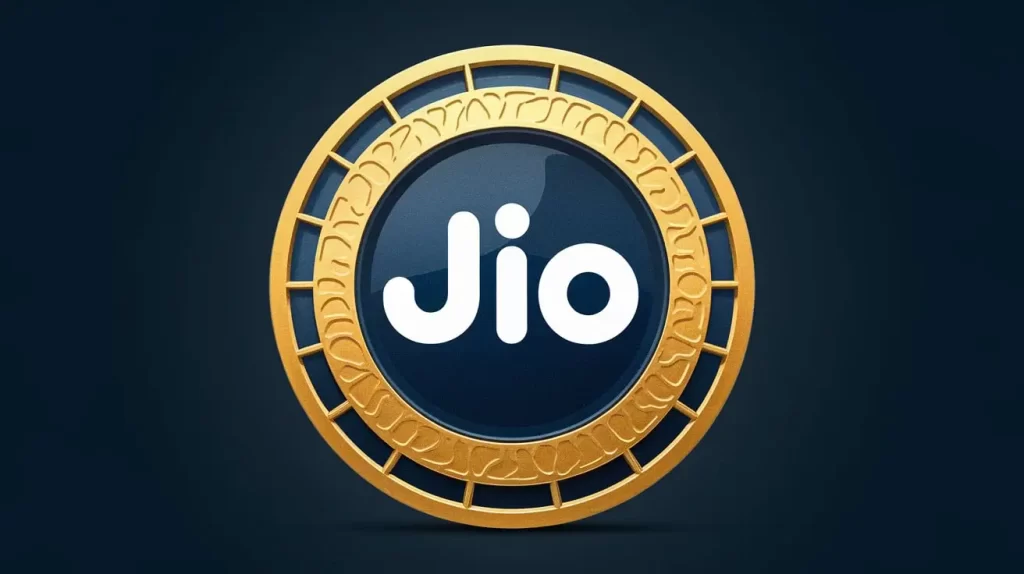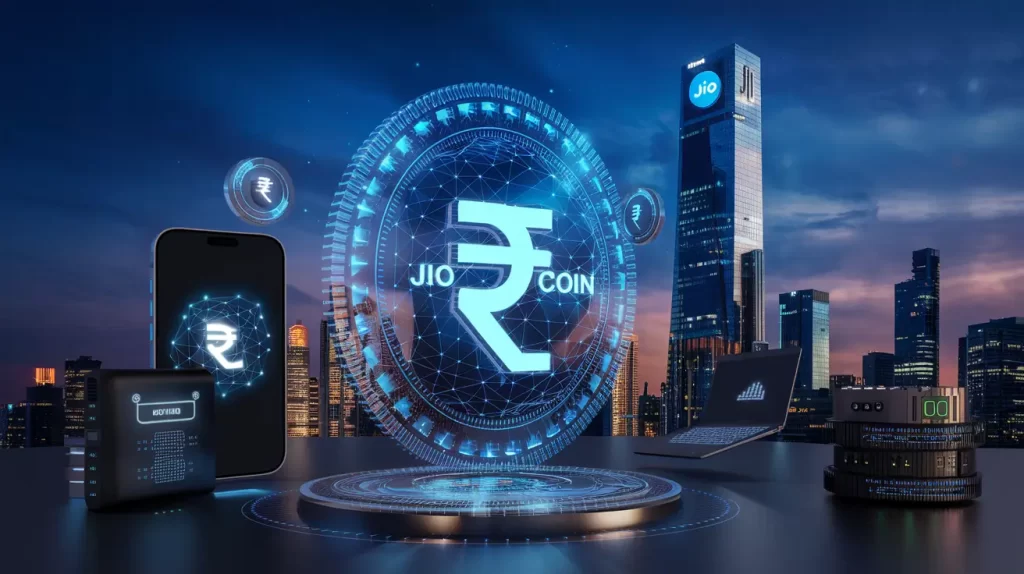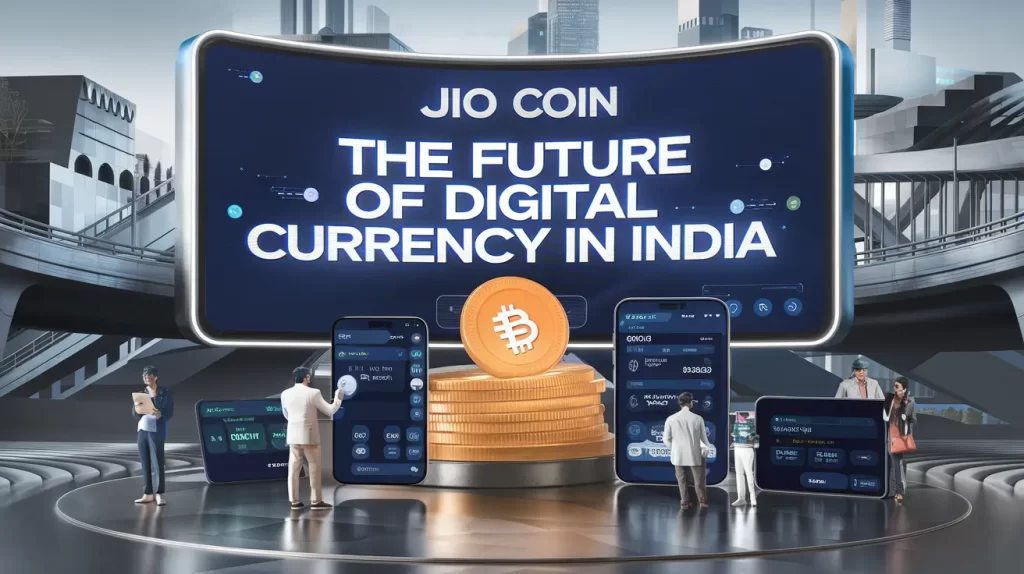In the evolving world of technology, cryptocurrencies have garnered significant attention, and one of the most promising developments is Jio Coin. As a part of Reliance Jio's ecosystem, Jio Coin has the potential to revolutionize the way digital transactions are conducted in India and globally. This article provides in-depth information about Jio Coin, its background, how it works, and its potential impact on the digital currency landscape.
Table of Contents
What is Jio Coin?
Jio Coin is a cryptocurrency that was initially rumored to be under development by Reliance Industries, one of India's largest conglomerates. The concept of Jio Coin emerged when Mukesh Ambani, the chairman of Reliance Industries, announced that the company was exploring blockchain technology and digital currency. The announcement stirred significant interest, especially given Jio’s success in revolutionizing the telecom sector in India.

Jio Coin aims to create a decentralized digital currency for users across India, capitalizing on the blockchain technology that underpins popular cryptocurrencies like Bitcoin and Ethereum. The project is expected to integrate seamlessly with the Jio ecosystem, offering various advantages such as fast and secure transactions, low-cost remittances, and innovative business models in the digital economy.
Background of Jio Coin
Jio Coin was first mentioned in the media in 2017, when reports suggested that Reliance Jio was developing its own cryptocurrency. The company is already a leader in the telecom industry and has brought about several disruptions in the Indian market. Jio Coin is seen as another ambitious step by Reliance to expand its digital portfolio and enter the rapidly growing world of blockchain and cryptocurrency.
Reliance Jio, since its launch in 2016, has revolutionized the Indian telecom industry by offering affordable data and voice services. The success of Jio led to a massive digital transformation in India, with millions of Indians gaining access to the internet. This success story has positioned Jio Coin as a potential game-changer in the cryptocurrency sector.
Blockchain Technology: The Backbone of Jio Coin
At the heart of Jio Coin lies blockchain technology. Blockchain is a decentralized ledger system that records transactions in a secure and transparent manner. Unlike traditional centralized systems where a single entity controls the transaction records, blockchain is decentralized, meaning that no one person or institution can manipulate or alter the records.
The security and transparency offered by blockchain make it an ideal foundation for digital currencies like Jio Coin. Transactions made with Jio Coin will be processed and verified by a network of computers, ensuring that each transaction is legitimate and secure. Additionally, blockchain eliminates the need for intermediaries, which reduces transaction costs and improves efficiency.
How Jio Coin Works
The concept behind Jio Coin is similar to other cryptocurrencies, such as Bitcoin or Ethereum, but with a key difference: Jio Coin aims to be fully integrated into the Indian market, particularly with Reliance’s existing products and services.

Below is an overview of how Jio Coin is expected to function:
- Mining Process: Like Bitcoin, Jio Coin will likely rely on a process called mining to create new coins. The Jio Coin’s mining process is through the JioSphere Web Browser. Mining involves solving complex cryptographic problems to verify transactions and secure the network. Miners are rewarded with newly minted coins for their efforts.
- Digital Wallets: Users will need a digital wallet to store their Jio Coins. A digital wallet is a software application that allows users to send, receive, and store cryptocurrencies. Jio Coin is expected to be compatible with popular cryptocurrency wallets, as well as wallets developed specifically for Jio Coin.
- Transactions: Jio Coin transactions will be recorded on a decentralized ledger (blockchain). These transactions will be verified and processed by the network, ensuring that the system is secure and transparent. Users can make transactions directly between one another, without the need for a third-party intermediary like a bank.
- Integration with Jio Services: One of the most significant advantages of Jio Coin is its potential integration with Jio’s vast ecosystem of products and services. Users may be able to use Jio Coin for transactions across Jio platforms, including Jio’s telecom services, JioMart (e-commerce platform), JioCinema (streaming services), and more. This level of integration could make Jio Coin a convenient and attractive option for users in India.
The Potential Benefits of Jio Coin
Jio Coin has several potential benefits that could make it an attractive option for both individual users and businesses. Some of the key advantages include:
- Low Transaction Costs: Cryptocurrency transactions typically have lower fees compared to traditional banking methods. Jio Coin is expected to offer minimal transaction fees, making it an appealing option for businesses and individuals who want to avoid high banking fees.
- Increased Financial Inclusion: India has a large unbanked population, and many people do not have access to formal banking services. Jio Coin could offer these individuals a way to participate in the digital economy, as cryptocurrencies can be accessed using smartphones and the internet. This could significantly increase financial inclusion in the country.
- Security and Transparency: Blockchain technology ensures that Jio Coin transactions are secure and transparent. Each transaction is recorded on a public ledger, making it difficult for malicious actors to alter the transaction history. This level of security can help reduce fraud and increase trust in the system.
- Global Remittances: One of the primary use cases for Jio Coin is in the realm of remittances. India receives a significant amount of money from its diaspora, with millions of Indians working abroad. Jio Coin could provide a low-cost and efficient way to send money across borders, without the need for expensive intermediaries like banks or money transfer services.
- Integration with Jio Services: Jio Coin could be seamlessly integrated with Jio’s existing products and services, including Jio data plans, JioMart, JioCinema, and more. This integration could lead to a streamlined user experience, where customers can use Jio Coin to pay for a wide range of services within the Jio ecosystem.
Jio Coin’s Impact on the Indian Market
India is one of the largest emerging markets in the world, and the adoption of cryptocurrencies is growing. While India has not yet fully embraced cryptocurrencies, the rise of Jio Coin could accelerate the country’s adoption of digital currencies. Below are some potential impacts Jio Coin could have on the Indian market:
- Digital Economy Growth: The launch of Jio Coin could accelerate the growth of India’s digital economy. By offering a decentralized currency, Jio Coin could provide businesses with a new way to transact and interact with customers. As more businesses accept Jio Coin, the digital economy will expand, creating new opportunities for entrepreneurs and investors.
- Cryptocurrency Regulation: The Indian government has taken a cautious approach to regulating cryptocurrencies, with concerns over security, money laundering, and tax evasion. Jio Coin could help drive the conversation around cryptocurrency regulation, especially if it gains widespread adoption. The government may choose to regulate Jio Coin to ensure that it complies with Indian financial laws.
- Promoting Financial Literacy: Jio Coin’s introduction could promote financial literacy among Indian consumers. As more people learn about cryptocurrencies and blockchain technology, they may become more knowledgeable about the broader financial landscape. This could lead to a shift toward digital payments, reducing reliance on cash and promoting a cashless economy.
- Job Creation and Innovation: The development of Jio Coin could lead to the creation of new jobs in the technology and finance sectors. As the digital currency market grows, there will be an increased demand for blockchain developers, cryptocurrency experts, and regulatory professionals. Additionally, the Jio Coin ecosystem could encourage innovation in the financial services and e-commerce industries.
Challenges and Concerns
While Jio Coin holds significant potential, there are also challenges and concerns that must be addressed before it can be widely adopted:
- Regulatory Uncertainty: One of the primary concerns surrounding Jio Coin is the regulatory environment in India. The Indian government has not yet established clear regulations for cryptocurrencies, which could create uncertainty for businesses and consumers. There is also the possibility that the government may ban or restrict the use of Jio Coin if it is deemed to pose risks to the financial system.
- Security Risks: While blockchain technology is secure, the broader cryptocurrency ecosystem has been plagued by hacking incidents and scams. Jio Coin will need to implement strong security measures to protect users from potential attacks, such as phishing, malware, and other forms of cybercrime.
- Volatility: Cryptocurrencies are known for their price volatility, and Jio Coin will need to ensure that its value remains relatively stable to gain the trust of users and businesses. Excessive volatility could deter people from using Jio Coin as a medium of exchange.
- Competition from Other Cryptocurrencies: Jio Coin will face stiff competition from established cryptocurrencies like Bitcoin, Ethereum, and others. It will need to offer unique features or advantages to stand out in the crowded cryptocurrency market.
Conclusion
Jio Coin represents an exciting development in the world of digital currency. With the backing of Reliance Jio, one of India’s most successful companies, Jio Coin has the potential to revolutionize the way digital transactions are conducted in India and beyond. By leveraging blockchain technology, Jio Coin could offer low-cost, secure, and efficient transactions while promoting financial inclusion and economic growth.
However, there are several challenges that need to be addressed, including regulatory uncertainty, security risks, and competition from other cryptocurrencies. As the Indian government and global financial regulators continue to evolve their stance on digital currencies, the future of Jio Coin will depend on its ability to navigate these challenges and deliver real value to users.
Jio Coin is more than just a cryptocurrency; it is a symbol of India’s digital transformation and the future of the global financial ecosystem. If it succeeds, Jio Coin could become a major player in the digital currency space, empowering individuals and businesses alike to take part in the digital economy.





